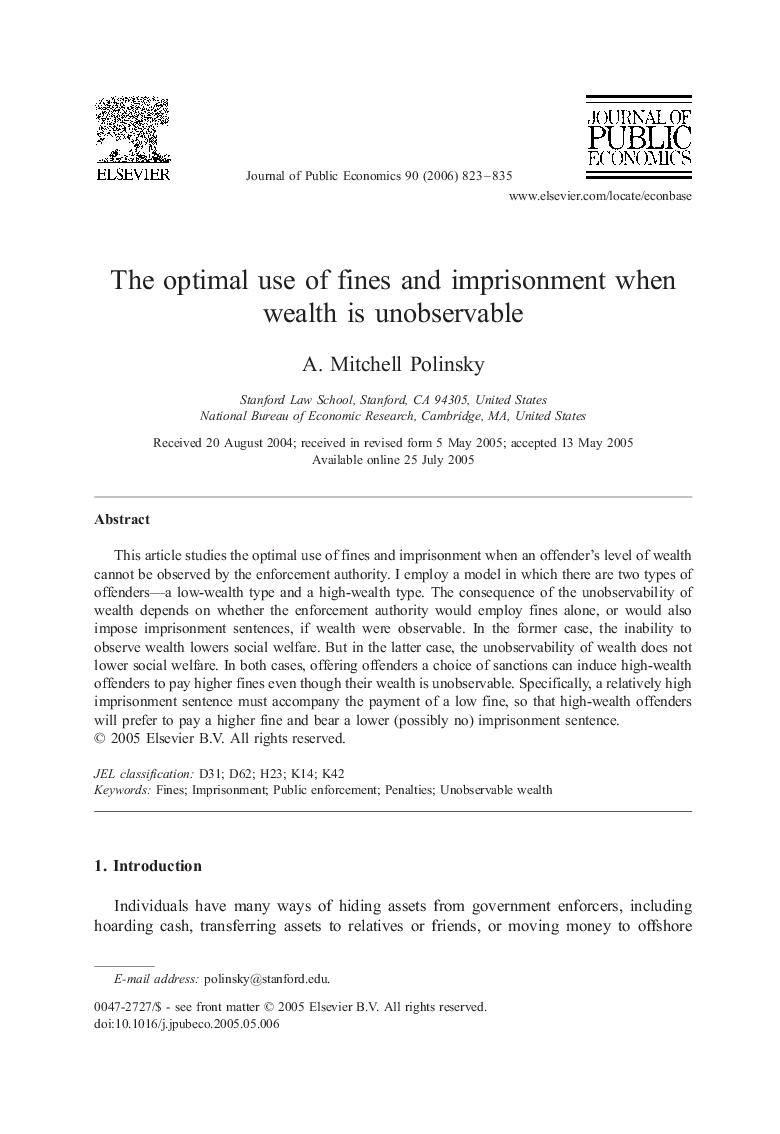| Article ID | Journal | Published Year | Pages | File Type |
|---|---|---|---|---|
| 969589 | Journal of Public Economics | 2006 | 13 Pages |
This article studies the optimal use of fines and imprisonment when an offender's level of wealth cannot be observed by the enforcement authority. I employ a model in which there are two types of offenders—a low-wealth type and a high-wealth type. The consequence of the unobservability of wealth depends on whether the enforcement authority would employ fines alone, or would also impose imprisonment sentences, if wealth were observable. In the former case, the inability to observe wealth lowers social welfare. But in the latter case, the unobservability of wealth does not lower social welfare. In both cases, offering offenders a choice of sanctions can induce high-wealth offenders to pay higher fines even though their wealth is unobservable. Specifically, a relatively high imprisonment sentence must accompany the payment of a low fine, so that high-wealth offenders will prefer to pay a higher fine and bear a lower (possibly no) imprisonment sentence.
